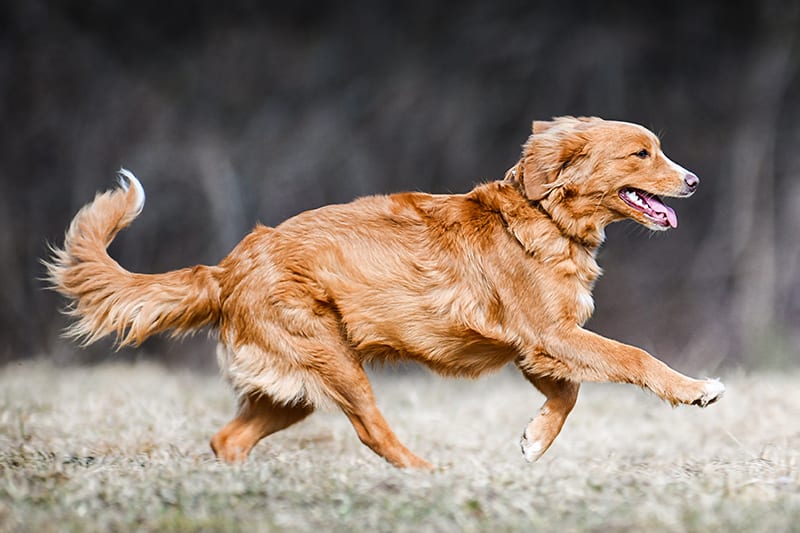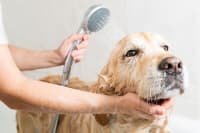Pet Care
Dog Dental Care – Why It’s Important
Keeping Your Dog’s Mouth Healthy
Studies have shown that our oral health is closely linked to our overall health, and the same holds true for our canine companions. Your dog’s overall health is closely connected to their oral health in a variety of ways.
Unfortunately, pet parents often don’t notice when their dog is suffering from painful oral health conditions such as periodontal disease, tooth decay or tooth loss, but these common conditions can have serious consequences for the long-term health and wellbeing of the pet.
Below are a few key reasons why dental care is so important for our pets.
Dog Dental Issues Can Be Very Painful
Many of us have experienced toothaches and other painful dental issues. If you have a toothache the pain can impact every aspect of your life, and it’s the same for your dog. Advanced periodontal disease, tooth decay and other conditions can be painful for your pup, and this pain can impact their behavior, demeanor and their ability to enjoy life.
Diligent dental care, both professionally and at home, are essential for preventing your pup from experiencing unnecessary mouth pain.
Mouth Pain Can Prevent Dogs From Getting the Nutrition They Need
If your dog is suffering from oral health issues they may feel anything from mild discomfort to severe pain in their mouth.
When dogs feel unwell, they will often intentionally fast, and this instinct is only heightened when eating is painful for them.
Signs that your pup is experiencing oral health issues include eating slowly or not finishing their food, and disinterest in treats, bones or chews. This could lead your dog to miss out on the nutrition they need to stay happy and healthy.
Diligent dental care and vet dental cleanings will help make sure your dog is able to enjoy their favorite foods and treats throughout their life.
Bad Breath Often Stems From Poor Dental Health
If smelling your dog’s breath causes you to plug your nose, pull away, or apologize to anyone else in the room, it’s a sign that they may be suffering from dental issues.
With a healthy mouth and consistent dental care, bad breath won’t be a problem for your pup and you can get all the kisses you want (without having to bear the smell).
Dental Plaque Is Linked to Organ Damage
Even when oral health issues aren’t apparent in your pup, or if you have identified and treated them, there can be long-lasting and invisible consequences for their long-term health.
If oral health issues reach advanced stages bacteria found in dental plaque is able to spread throughout the body via their bloodstream, potentially infecting their internal organs. Oral health issues have been shown to lead to a number of different diseases in dogs’ internal organs.
Routine dental care is a key step in protecting your pet’s dental health and overall health.
Prevention is Better Than Treatment
Routine dental care, whether that be brushing your dog’s teeth at home or bringing them in for professional cleanings, help your pocketbook too. Oral health issues, or infection and disease related to oral health issues, can be expensive to manage and treat on top of making your dog feel uncomfortable and unwell.
Taking the time to clean your dog’s teeth regularly, buying them veterinarian-recommended dental chews and taking them to the vet for professional dental cleanings can help to prevent unexpected expenses down the road, and ensure your pooch stays healthy, happy and energetic throughout their life.
Note: The advice provided in this post is intended for informational purposes and does not constitute medical advice regarding pets. For an accurate diagnosis of your pet’s condition, please make an appointment with your vet.
Is it time for your dog to have a professional dental cleaning and examination? Contact Animal Hospital of Clemmons today to book your pup’s next dental appointment.
Looking for a vet in
Clemmons?
We’re always accepting new patients, so contact our veterinary hospital today to book your pet’s first appointment.
Related Articles View All
Puppy Teething Tips for Pet Parents
Our Clemmons vets understand how trying it can be when your puppy starts teething. Teething pain often leads puppies to chew on things they shouldn’t – including your best shoes and furniture. Here are a few tips to help you and your puppy deal with your puppy’s teething.
Dog Grooming 101 – Grooming Different Coat Types
Although all dogs require brushing, bathing and general grooming, some require more care than others. Today our Clemmons pet grooming team explains how to care for dog coats of different textures and lengths.
What To Do About Your Dog’s Stinky Breath
Do you avoid getting close to your pup because their stinky breath is unbearable? Bad breath is common in dogs — especially in senior dogs — and can be a sign of a serious health issue. Our Clemmons vets explain some causes of dog bad breath and how you can help to treat or even prevent it.
Why should I enrol my pet in a Wellness Plan?
If your veterinary clinic offers Pet Wellness Plans you may be curious as to how these plans work and whether they are worth signing up for. Today, our Clemmons vets share 4 benefits to consider when deciding whether a Pet Wellness Plan is right for you and your pet.
Dog Acupuncture & The Conditions It Can Treat
Our Clemmons vets know that if your pet is suffering from a health issue you will want to do all you can to help them feel better. Pet acupuncture can be a noninvasive way to help improve your pet’s rehabilitation. Here’s a bit about how acupuncture for dogs works and when it can be used.







